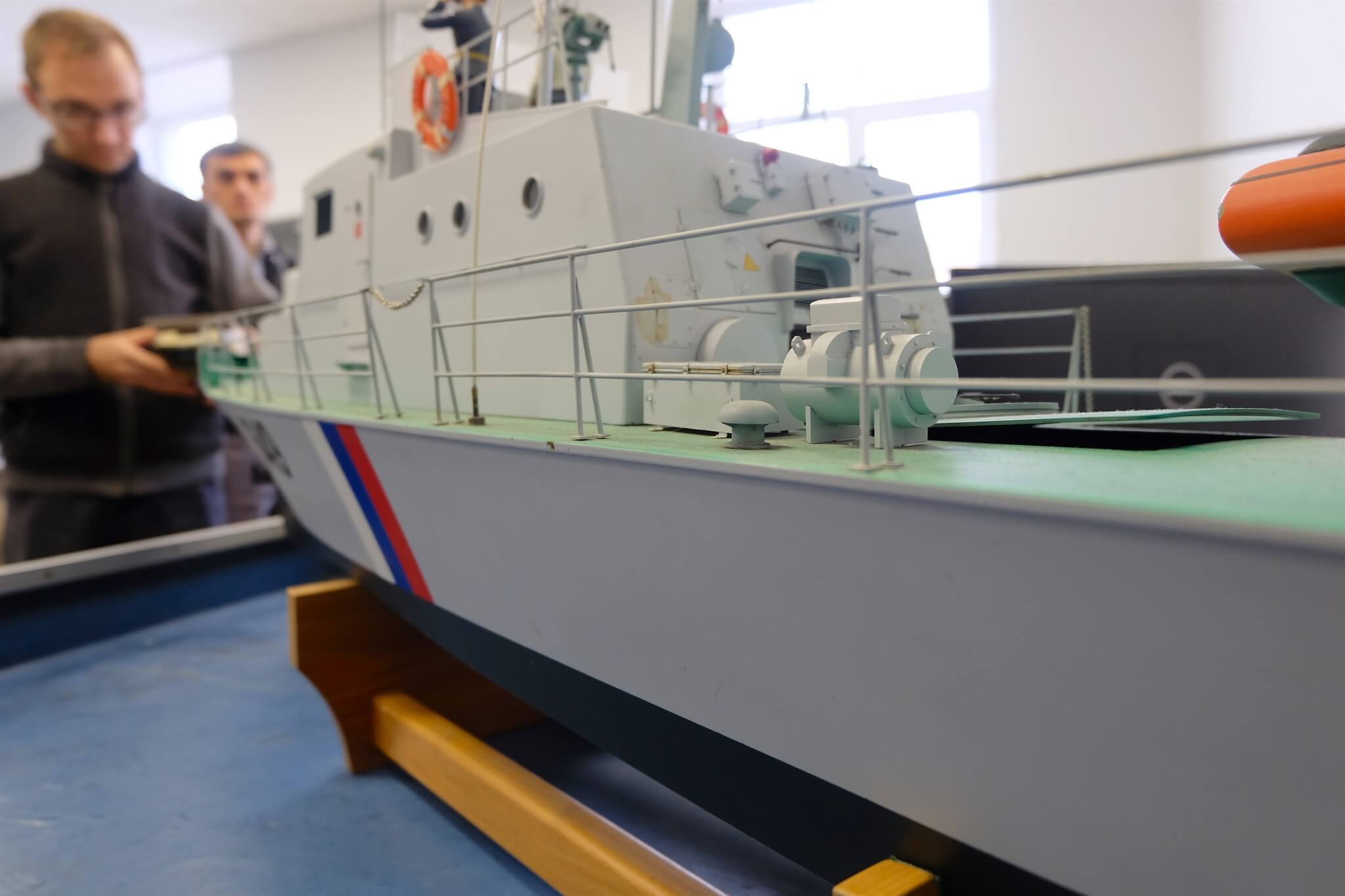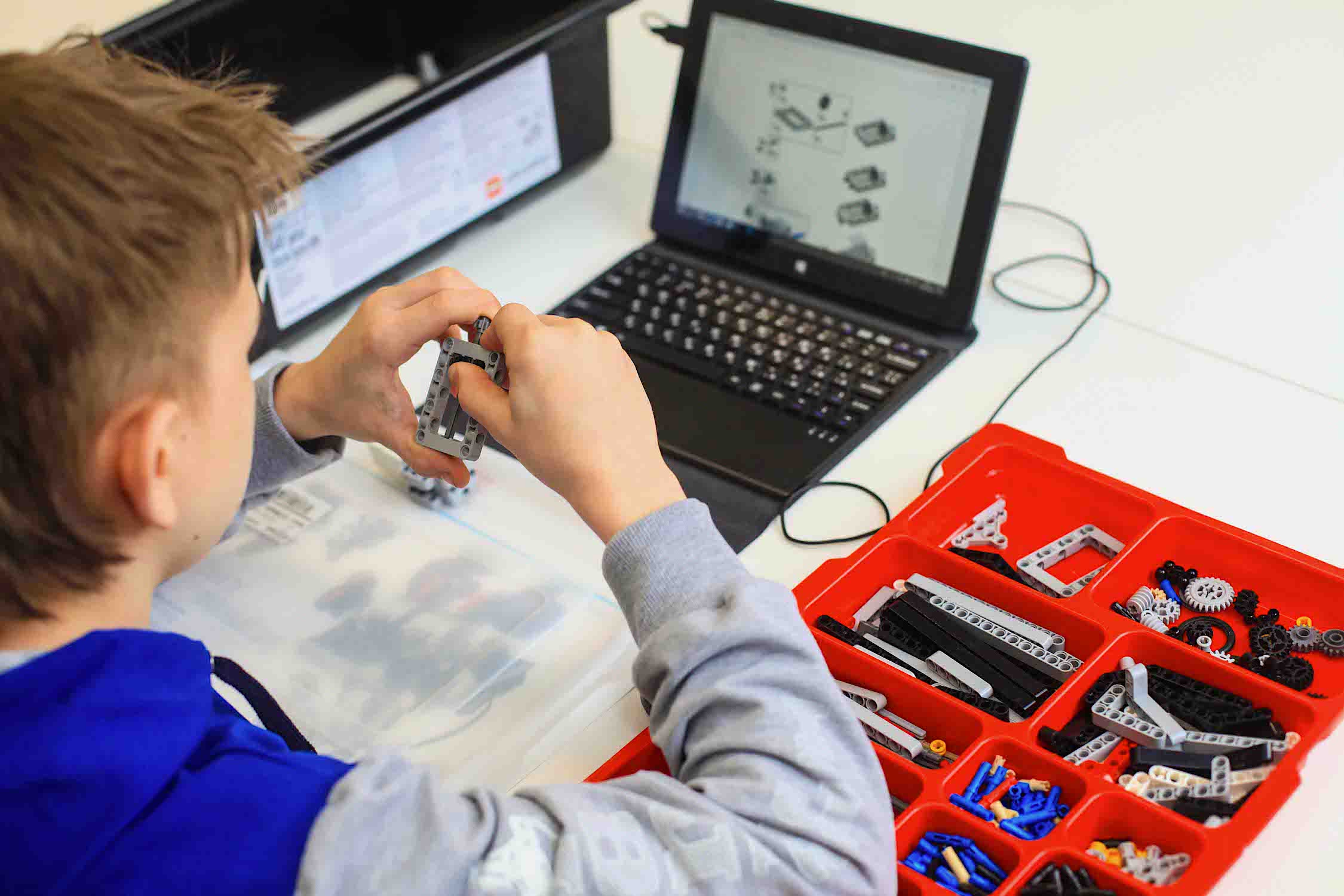One of the co-owners of
GoROBO is a graduate of the Department of Mechatronics of ITMO University. Two project employees - currently undergoing training in our master's program.
We’ll tell you why the founders of the startup are interested in the educational field, how they are developing the project, who they are waiting for as students and what they are ready to offer for them.
 Photo © from our story about the robotics laboratory of ITMO University
Photo © from our story about the robotics laboratory of ITMO UniversityEducational robotics
According to the National Association of Robotics Market Participants, in 2017,
1,500 educational circles in this discipline operated in Russia. Many of them - even then were launched on a franchise, and today - their number (and the number of franchisers) continues to increase. It is about hundreds of new educational organizations open all over the country.
At the same time, more and more schools are buying equipment for their own robotics clubs, children's technology parks -
Quantoriums , youth creativity centers and
fablages are beginning to appear. The development of infrastructure is followed by the formation of
competencies among specialists and teachers in this field, which means that there are real opportunities for the popularization of robotics among children. This is what projects like
GoROBO do .
Eldar Ikhlasov, one of the founders of the startup, said that he had not previously been interested in educational robotics, but admits that he was thinking about starting a technology business. He was helped by his son, who drew attention to a thematic circle at the
Palace of Young Creativity , and then began to participate in city competitions.
The idea came to my mind when I brought my eldest son to the Anichkov Palace robotics club. It became interesting to me to help him study, and already in the first year he took second place in his age category in the city. Then I realized that I wanted to teach robotics, and after a year of studying with my son, I was inspired by the idea of launching my own club. So the first club of our project appeared on Parnassus.
- Eldar Ikhlasov
How to form a team
Eldar encountered a problem immediately after the first influx of students - most of them left the club as the trial period ended. He assessed the situation and decided to invest in equipment - to buy a 3D printer adapted for teaching children. In the process of finding the right solution, Eldar met with Stanislav Pimenov, an engineer from ITMO University and a developer of a training 3D printer. The situation with the outflow of children stabilized, and after some time Eldar offered Stanislav cooperation as a partner.
Now the GoROBO team has twelve people and there are several outsourced employees. The founders call the project a "network of clubs." It includes
six thematic circles. Classes with children are conducted by graduates and students of the last courses of technical universities with experience in participating in competitions in sports robotics, and administrators are responsible for organizational processes and interaction with parents. Each of the founders of the project oversees several clubs - tracks the progress and quality of programs, engages in marketing and development.
Initially, I conducted classes with educational Lego designers, later I began to hire teachers and got a 3D printer. So we got a thematic course on 3D modeling, and last year we wrote courses on programming in Scratch and creating smart devices based on Arduino.
- Eldar Ikhlasov
What programs does GoROBO offer?
The founders say they are ready to introduce the youngest guys to robotics. At the same time, they do not expect any special knowledge and skills from new participants before entering the club.
The team offers several educational programs. One - designed for two years of education for children from 5 years. The other is adapted for older children. For the most experienced students, the club helps with inventive activity and preparation for competitions.
In December and May, “GoROBO” holds internal competitions for students, and during the year it accompanies winners at city and national competitions in robotics. This approach is designed to help children in different areas of their lives - when studying at school and university.
 Photo © GoROBO Project
Photo © GoROBO ProjectAt the club, children learn the basics of robotics and assemble their own gadgets - for example, models printed on a 3D printer and smart devices based on Arduino. As projects complete, they can take their designs home - show them to parents and friends.
The software used in the process does not need to be paid. This is
Scratch and
Tinkercad .
What's up
The team analyzed the experience of launching and promoting clubs in different locations and regions, and now it is working on a model for interacting with potential franchisees and is preparing to launch its own franchise of clubs on robotics. In order to discuss and improve their achievements together with experts, the founders decided to go through the
accelerator of ITMO University .
Within the program, they got the opportunity to communicate not only with invited experts, but also with colleagues on the accelerator. Another - a dedicated mentor worked with the team, who helped draw up a business plan and form a vision for the further development of the project.
We were given an excellent opportunity to participate in various exhibitions and forums. But we would be interested to develop further - for example, to work with IT companies that develop their own online courses for children. Still - we are thinking about the possibility of preparing materials in English and entering the international market.
In the meantime, we are waiting for young engineers to attend our classes in St. Petersburg.
- Eldar Ikhlasov
PS GoROBO clubs operate as general education schools from September to May. At the end of each lesson, parents can see the results. The project plans are to develop a platform for tracking student progress and distance education.
PPS Materials for additional reading on our blog:
- A smart stethoscope is a startup project from an accelerator at ITMO University . Respiratory diseases are one of the most common reasons for going to the clinic. Laeneco's startup team has developed a smart stethoscope that uses MO algorithms to determine lung disease from audio recordings. Already, its accuracy is 83%. The article talks about the capabilities of the gadget and its prospects for doctors and patients.